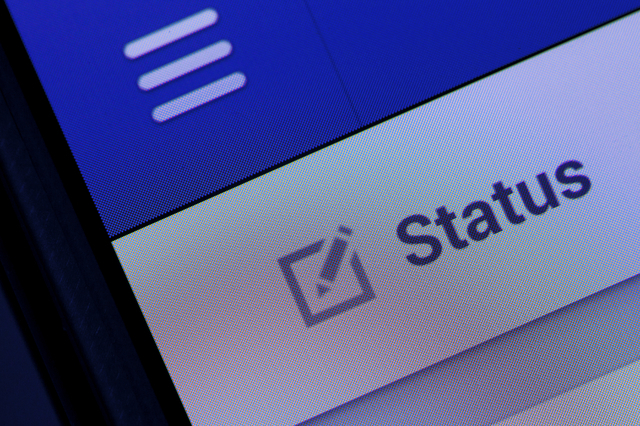No more ‘feeling fat’ on Facebook
Facebook has defriended its “feeling fat” emoticon, announcing Tuesday that the option did not fit the spirit of its “How are you feeling?” prompt.
“We’ve heard from our community that listing ‘feeling fat’ as an option for status updates could reinforce negative body image, particularly for people struggling with eating disorders,” said a Facebook spokeswoman to The Washington Post.
The rosy-cheeked, double-chinned emoticon had been one of 100 emotion options offered by the social media giant, appearing alongside more typical fare like “excited” (a smiley face with stars for eyes) and “blessed” (a smiley face with a halo), according to Yahoo Health. But then Endangered Bodies, an organization that promotes positive body images, launched an international campaign against the chubby yellow face that corresponded with National Eating Disorders Awareness Week, Feb. 22-28.
“Over time, ‘fat’ has become a negative word, not a simple statement of size. There is nothing neutral about it. The stigma and criticism of fat and the elevation of thin make them stand-ins for other kinds of words, feelings and moods,” Endangered Bodies wrote in its campaign announcement.
Catherine Weingarten, the face of the organization’s U.S. efforts and an Ohio-based graduate student, told People the phrase “feeling fat” embodies the pain she felt while struggling through an eating disorder.
“I always had this idea of ‘I’m fat, I feel fat,’ but when I was saying that, … I was feeling angry at myself and like I wasn’t good enough,” she said.
Weingarten told her story and issued a call to action through a Change.org petition, encouraging Facebook users and people impacted by body-image issues to speak up about their discomfort with the fat emoticon. At the time of Facebook’s announcement, it had more than 16,000 signatures.
Additionally, people shared their displeasure with the social media hashtag #fatisnotafeeling.
According to NEDA, the organization behind National Eating Disorders Awareness week, around 20 million women and 10 million men in America suffer from a “clinically significant eating disorder” at some point in their life. Sites like Facebook can exacerbate existing problems as people compare themselves to photos posted by others and seek support from friends who aren’t prepared to offer it.
Facebook includes information about eating disorders in its Help Center, noting that reading “worrisome things” about food habits shouldn’t inspire likes or comments. Instead, the site lists contact information for eating disorder help lines.


















